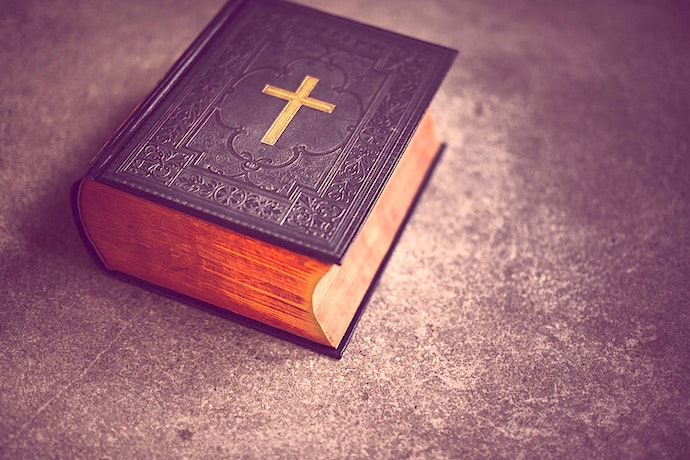As the Select Committee on the January 6th Insurrection is now investigating the terrorist attack on the United States Capitol, one theme that deserves closer inspection is white Christian nationalism. There’s no denying the Christian conviction of the hoards that invaded the Capitol that fateful day when both violent and nonbelligerent protesters prayed in the name of Jesus Christ, proudly adorned themselves with Christian crosses, and announced the good news that “JESUS SAVES” as they defiantly carried out their mission (im)possible.
While the very identity of Christianity remains a contested one, white Christian nationalism didn’t appear out of nowhere on January 6. And despite recently released data showing a 9% decline among Americans identifying as white evangelical Protestants since 2006 (23% to 14% in 2020), white Christian nationalism has long become indistinguishable from some of the most influential and virulent forms of white evangelicalism in America.
Judging from the chorus of voices, however, that has denounced the insurrection, this heritage is a burdensome one for millions of Americans today who strive to form a much more perfect union. Since January 6, critical opinion pieces continue to appear across major outlets deploring the racist agendas, imperialist politics and biblical interpretations of the Christian right and toxic white evangelicals who are determined to go to any length to preserve the myth that America is a white Christian country. However, critics often stop short of addressing an underlying fundamental issue—the Bible’s unambiguous endorsement of colonial conquest.
As long as we neglect to interrogate all of the sacred sources that animate the Christian right’s white nationalist, racist and imperialist theologies, we will continue to tiptoe around the sacred cow that’s fed American ideas of exceptionalism, election, Manifest Destiny, meritocracy and white Christian supremacy.
This caution applies to African-American Christians too who, especially after the mid-19th century, often identified with the ancient Hebrews/Israelites in the Book of Exodus, viewing themselves as God’s chosen people with noble hopes of liberation from racial captivity in a democratic America.
Robert Warrior, a scholar and member/citizen of the Osage Nation, was likely the first theologically trained American academic to contest the Exodus narrative in his article, “A Native American Perspective: Canaanites, Cowboys, and Indians.” While Warrior recognized the historical import of Moses and the Exodus event for Black liberation theology he shifted theologians’ attention to the implications of the larger narrative that extended to the Book of Judges, where God’s chosen people, the Israelites, were guided into the promised land of Canaan through divinely-sanctioned war, colonialism, and genocide against Israel’s enemies.
Warrior was also among a number of scholars who emphasized that African Americans were not the only Americans to identify with the Israelites. White European settlers had also adopted the Israelite Exodus narrative as they understood themselves as God’s chosen people who had a right to claim their promised land of America at the costly expense of the original inhabitants. Based on the Christian witness of America’s white settlers, Warrior interprets their genocidal acts committed against Native Americans as a biblically-sanctioned genocide where his people, like the Canaanites, could be exterminated to make room for God’s righteous elect—Puritan and other white Europeans—to claim sovereignty over their promised land.
Womanist theologian Delores Williams raised similar questions about what it means for Black theologians to continue to uphold Exodus as an exemplary liberation text, given that the Exodus narrative doesn’t end with the Israelites crossing the Red Sea but continues with the God of the Israelites also sanctioning state terror, war, and genocide against non-Israelite peoples. Of course it’s important to note that an adequate response can never begin with antisemitic supersessionist reasoning, which simply amounts to another form of violence that fails to consider the intentions and actions of the Christian God.
In the light of these theological interventions, I’m reminded of the March 2008 controversy that erupted when clips of Reverend Jeremiah Wright’s sermons inundated America’s TV screens. At the time Wright was the pastor of Trinity United Church of Christ in Chicago, where the Obamas held membership, and many Americans were appalled at his excoriating remarks about the United States’ racist, nativist and imperialist acts against African, Asian and Indigenous peoples domestically and internationally.
The optics were bad, but America’s perception was based on short cherry-picked video clips from two of Wright’s sermons. Both Democratic and Republican opponents seized upon a felicitous opportunity to characterize Barack Obama as un-American and unpresidential, since he followed a pastor whose vision could not be reconciled with the image of the innocent and exemplary United States most whites identify with their own sense of personal innocence and good will.
In fact, once I heard Reverend Wright’s April 13, 2003 sermon, “Confusing God and Government,” in its entirety, I also took issue with it—though not for the same reasons most of America did. While millions castigated Wright for going too far, I felt he hadn’t gone far enough in one key area of analysis that remains the elephant in the legacy of white American Christian imperialism.
It wasn’t enough to expose white America’s history of colonial conquest. I was waiting to hear Reverend Wright speak the truth about the imperialistic texts of terror in the Bible itself. Biblical passages from the Books of Deuteronomy, Joshua and Judges offer exemplary stories that relay how the God of the Bible promised his chosen people their own territory after having suffered 400 years of bondage in Egypt. Although that territory was already occupied, God authorized his chosen people to invade, rape, pillage, massacre and even commit genocide against their Baal-worshipping Canaanite neighbors.
But rarely do I read any commentary about this narrative of terrorism in the Bible when perusing critical articles on white Christian supremacy. It’s like decrying the increased incidence of mass shootings in America without contesting our legislative, political and cultural climate that promotes gun possession and the glorification of gun violence. As a result, audiences can be left with the perception that the Bible has little or nothing to do with white Christian nationalism and imperialism, when nothing could be furthest from the truth.
The strongest unifying element among the whites who stormed the U.S. Capitol on January 6 was a sentiment of entitlement to America—the landmass, the culture, its Christian heritage and its governing institutions. The insurrectionists perceived themselves not as invaders and desecrators of the U.S. Capitol. Rather, they styled themselves protectors and defenders of their nation, which was realized through invasion, occupation, genocide, imperialism, Manifest Destiny and the biblical mandates that, for centuries, have inspired the birth of white Christian nations.
Reverend Wright’s damnation of America for its brutal and inhumane encroachment upon Native Americans and Nations in Africa, Latin America, the Caribbean, Asia and the Pacific Islands takes us face to face with the very fundamental biblical contradiction that Warrior and Williams claim Christians have a moral obligation to confront. They provoke us to acknowledge that the God African Americans have come to revere as a liberator is arguably the same God that has inspired the white ruling class’s colonial, genocidal and slaveholding presence in the United States and current imperialistic presence around the globe.
It’s time for the Black preaching tradition, and indeed all Christian preachers and laypersons, to confront the problem of the nature of a God who liberates some people (the Israelites) while authorizing the colonization and extermination of other people (the Canaanites and other non-Israelite nations).
As I listened closely for what I wasn’t hearing in Reverend Wright’s sermonic denouement more than a decade ago, I was left wanting more—wanting a courageous preaching tradition that probes the identities and ideologies of the victors among “God’s people” and victims of “God’s people’s” terrorist actions. Through such exploration comes opportunities to acknowledge that liberation and terror often cohabit among oppressors and the oppressed.
I viewed the Reverend Wright affair the way I viewed the January 6th insurrection—as an invitation for all American Christians to courageously embrace a critical theological consciousness that demands honest and painful reflection on liberation, violence, and terror in America, in the Christian Bible, and in the contested history of biblical interpretation.
However, since most progressive and prophetic Christian pastors and laypersons avoid this topic when justifiably denouncing white Christian supremacy, we miss opportunities to scrutinize and equally denounce the biblical foundations of Euro-Western and American imperialism. Those foundations are what embolden 21st-century white Christian nationalists to wage war on the U.S. Capitol, to go to prison for their convictions, and to plot the next bloody battle for the soul of the American nation.





